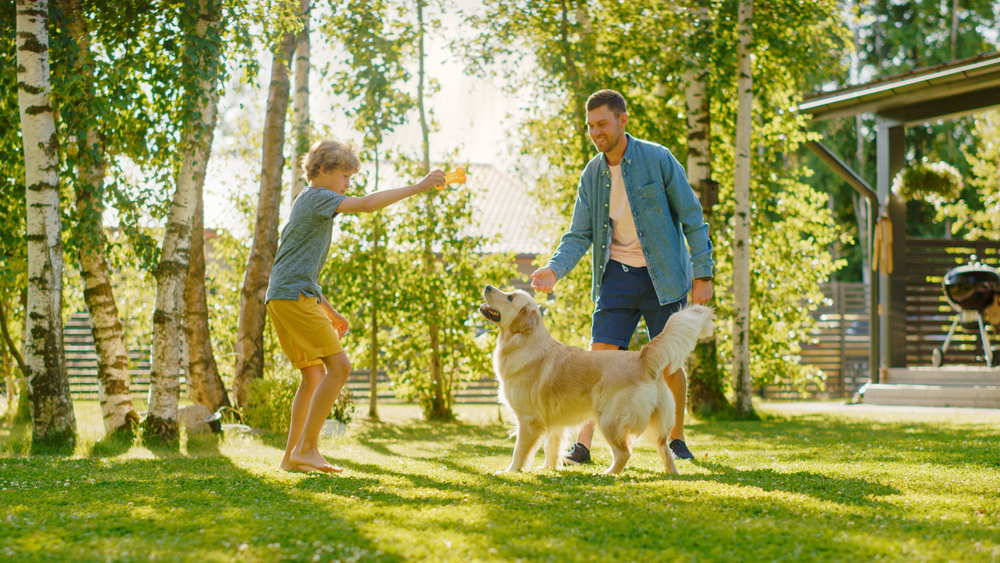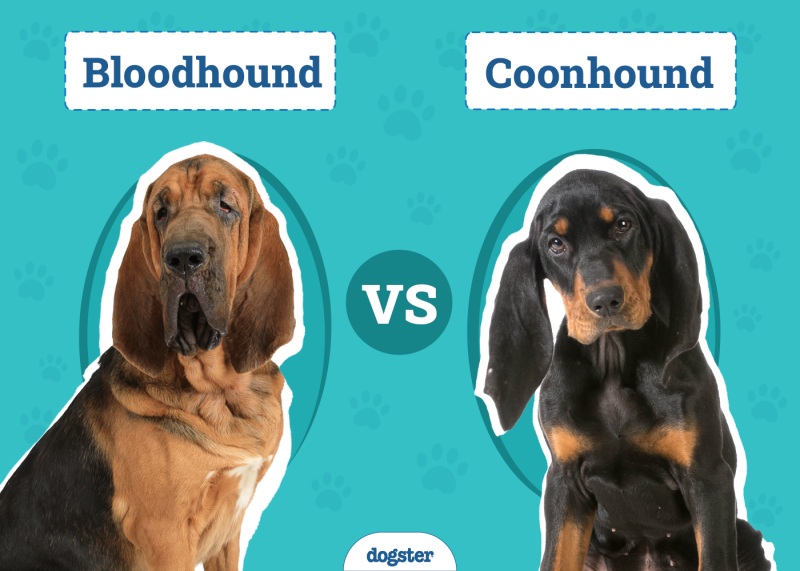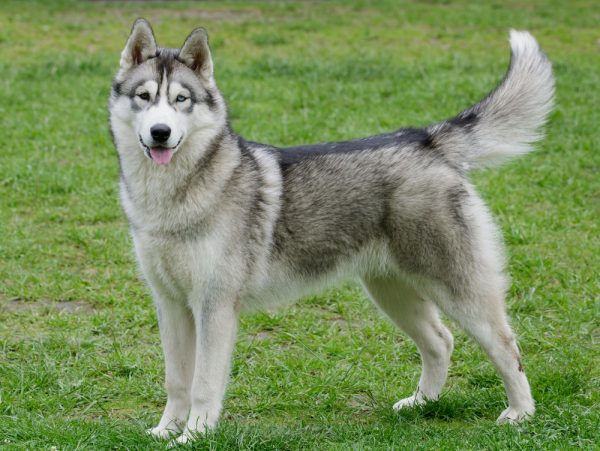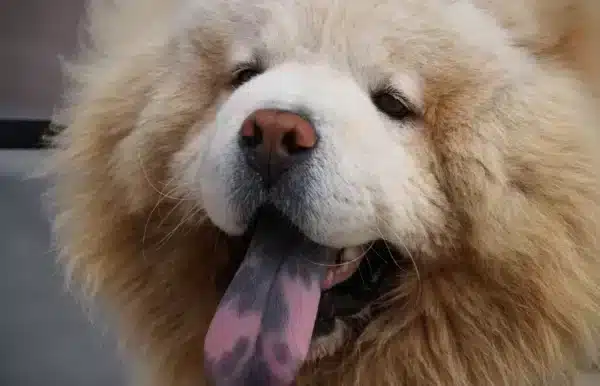When the sun is shining and the temperature’s rising, it’s time to put your freshly mowed lawn to use and make daily outdoor activity with your dog part of the routine. The possibilities are limitless when you let your dog off-leash in a fun one-on-one play session.
With a fenced-in backyard, you can participate in plenty of games, training activities, and enrichment opportunities to keep your dog healthy and happy. A backyard is a blank slate, leaving many to wonder how they should begin to turn it into their dogs’ personal puppy playground.
Take advantage of your space and give your pup an exciting workout with these 11 backyard games for dogs. Make sure your dog is in good physical health before playing any of the more strenuous activities.

The 11 Backyard Games for Dogs
1. Play Fetch
Fetch is a classic game most dogs instinctively enjoy. Many breeds, like Retrievers, are naturals at the game, but you can train almost any dog to pick up and return a chased-down ball or toy with a few basic commands.
How to Train Fetch
To get started, teach your dog to hold the toy. Shape the behavior by clicking or marking whenever your dog gives the toy attention, offering a treat to build a positive association.
After a few repetitions, your dog will know the toy is worth their interest. Raise the criteria as they give it attention. Wait to click and reward when they touch the toy and then when they put their mouth on it.
Once your dog knows to put their mouth on the toy to get a click and a treat, allow them to hold onto it longer. Have your dog wait a few seconds with the toy in their mouth before clicking and giving the treat. When your dog reliably holds the toy, you can start throwing it away from you.
Rather than hold the toy, place it about a foot away from you and have your dog grab it, clicking and rewarding when they do. Continue moving it further away, and eventually, you can throw it across the yard. When they retrieve it, you can try calling your dog to have them return the toy. Then, reward them with a click and a jackpot treat when they complete the process of fetching and returning.
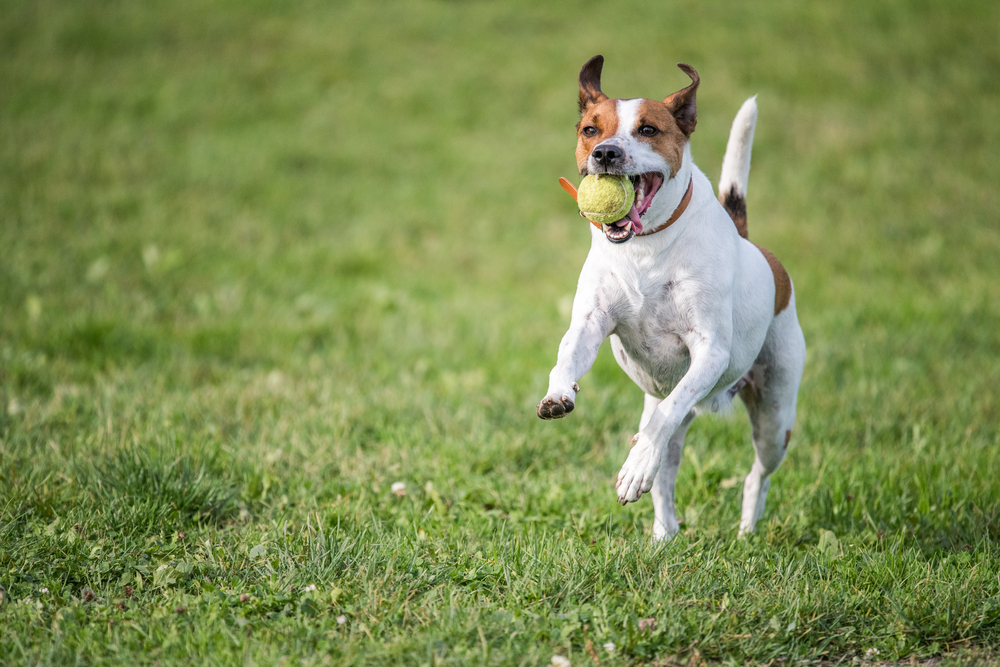
2. Hide and Seek
Hide and Seek doesn’t need much more than a few bodies and a backyard with features to conceal the players. While you can’t expect your dog to count to 20 before searching, someone can hold them until the players hide, or you can ask them to “stay.”
The hiders can then call for your dog to help them, and they can reward the dog when they’re found. If you’re alone, you can integrate Hide and Seek into a game of fetch. After throwing your dog’s toy, run and hide while they turn their back as they retrieve it.
Call for your dog, and give them praise and treats when they return the toy to you.
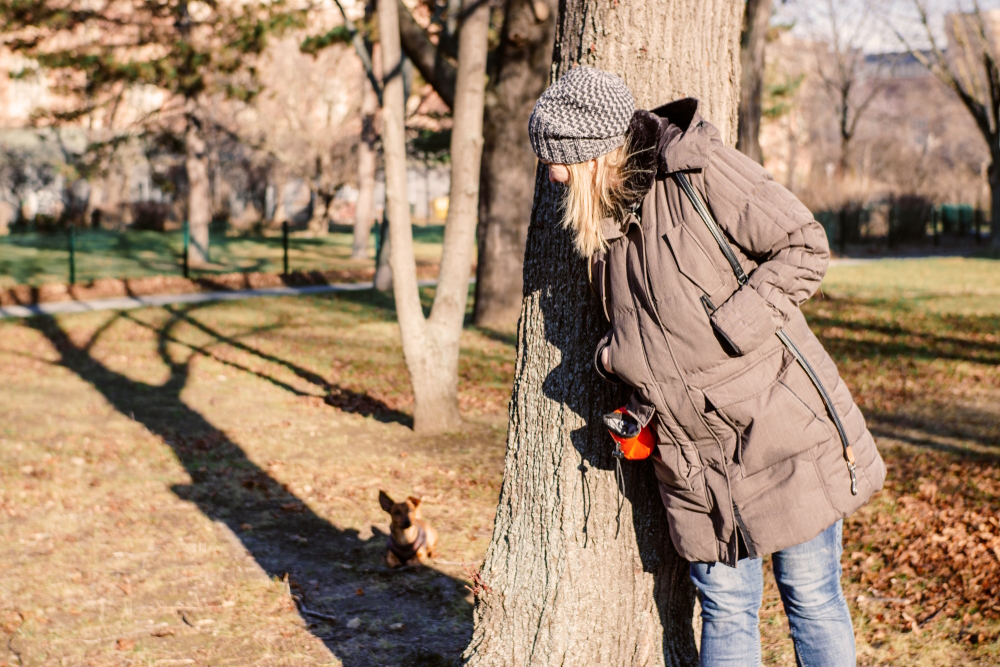
3. Hidden Treats
Nose work is an exceptional enrichment opportunity for any dog. It provides a mentally and physically exhausting workout that keeps dogs calm and docile in the home. Plus, it’s easy to set up!
All you need are treats or kibble and maybe some dispenser toys. Scatter the food or hide the toys in the backyard, and let your dog figure out the rest in this simple scavenger hunt.

4. Tetherball
Herding breeds will get a kick out of a tetherball in the backyard. You can teach your dog to nose and push the ball via shaping, but many dogs will already be inclined to go after it once you get it moving.
It’s often good for two dogs, as they’ll eagerly jump into passing the ball back and forth. If you set up a tetherball in your yard, be careful to get a lightweight ball to prevent your dogs from hurting their snouts.
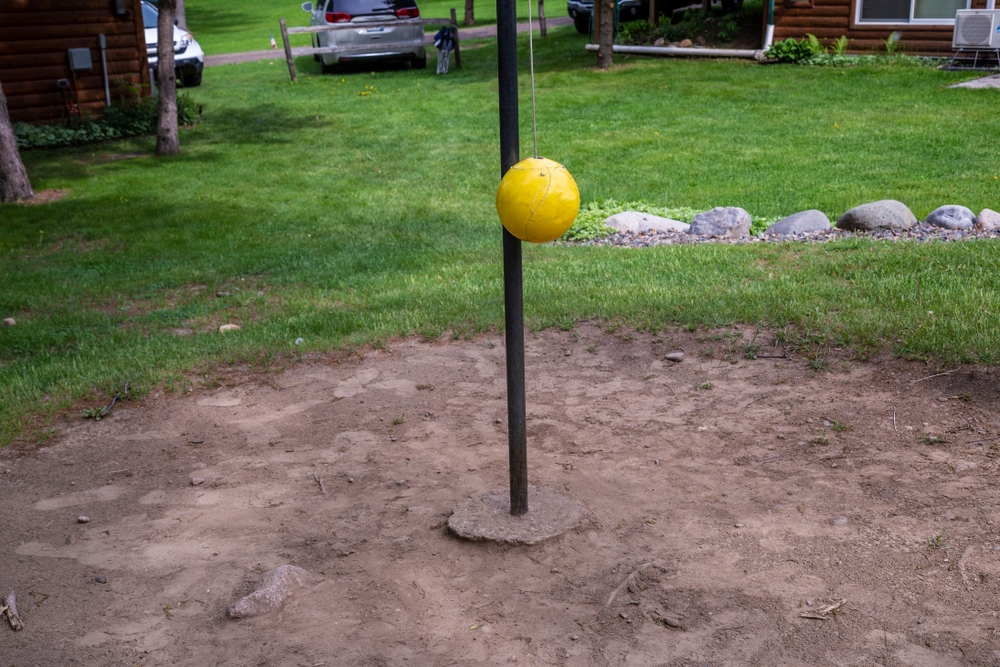
5. Soccer (Treibball)
Air Bud isn’t just a Hollywood fantasy. You can turn your pup into the next canine sports superstar with a little positive reinforcement training. While training your dog to nose a ball into a goal can seem challenging, it’s relatively straightforward when you slowly shape the behavior.
You can teach your dog to target the ball by rewarding steadily progressing interactions until they can reliably hit it with their nose. Training a dog to hit the ball into the goal is also the foundation for Treibball, which is a competitive sport designed for herders.
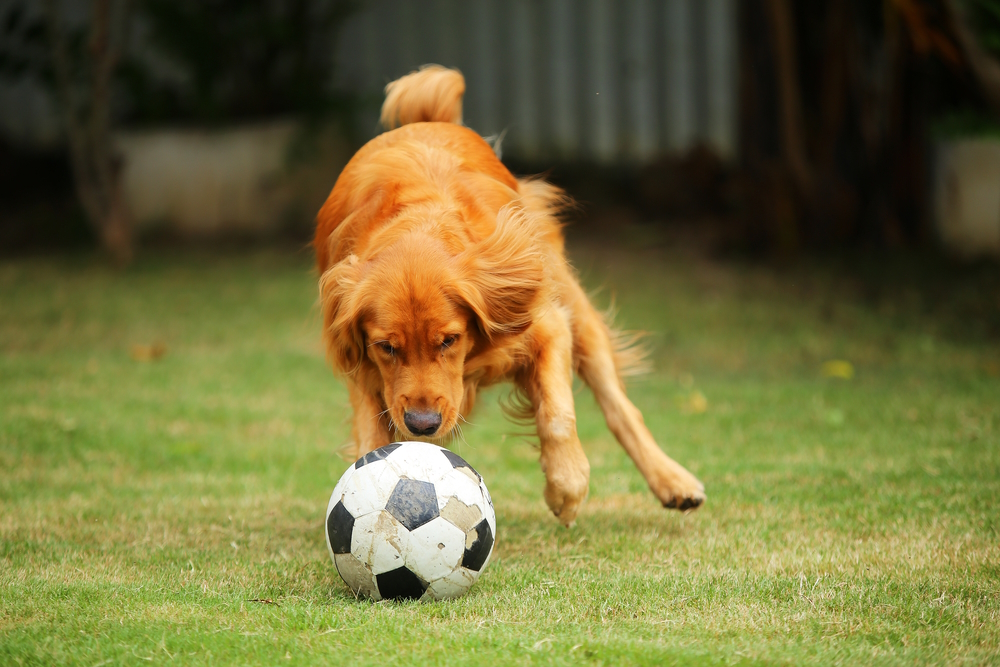
6. Flying Disc
Flying disc is a backyard game that looks truly impressive when you and your dog develop chemistry and a routine. A high-energy dog can excel in this sport once they learn to catch the discs.
To get started with flying discs, lure your dog with the disc and wave it around to grab their attention. Reward and praise attention and interaction until your dog tries to get the disc from your hand.
Once your dog begins vigorously playing tug with the disc, you know they’ve got the hang of it. You can then move on to having your dog chase the disc and toss it lightly in front of you. Eventually, your dog will learn to chase down the disc no matter where you throw it.
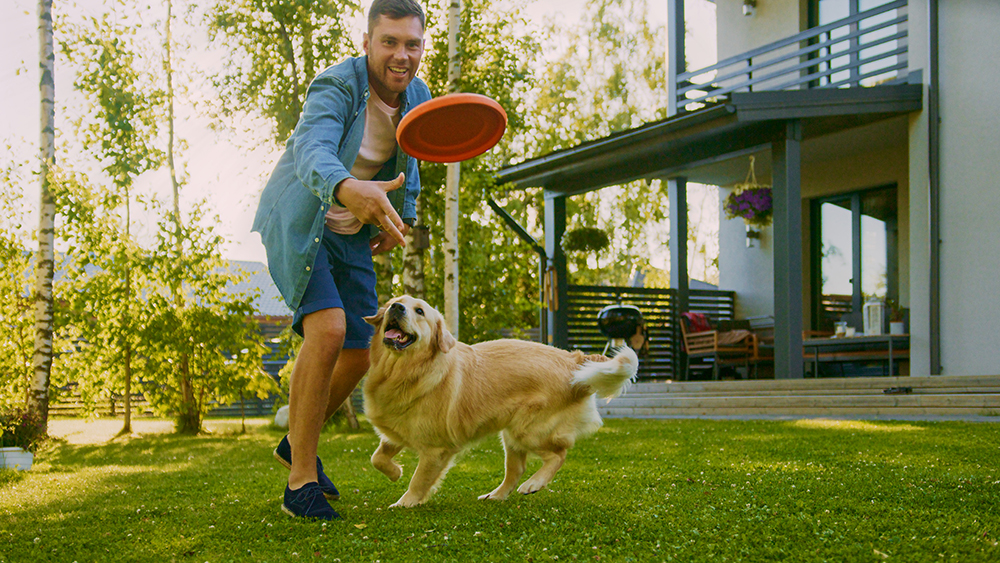
7. Monkey in the Middle and Keep Away
As a precursor to more challenging games like soccer, Keep Away is a fun, exhausting game that any dog will likely be gung-ho to play with little prompting. Grab a ball, preferably one your dog can’t pick up in their mouth or pop with their teeth, and kick it around to keep it away from them.
If you have friends or family members wanting to play, you can change to Monkey in the Middle. Toss or kick a ball to each other and let your dog intercept your passes. Even if they never catch it, they’ll love the chance to chase it around. Watch out for signs of frustration while your dog is playing this game and call it quits if they aren’t enjoying it or are getting over excited. You can swap to a calmer game like hidden treats.
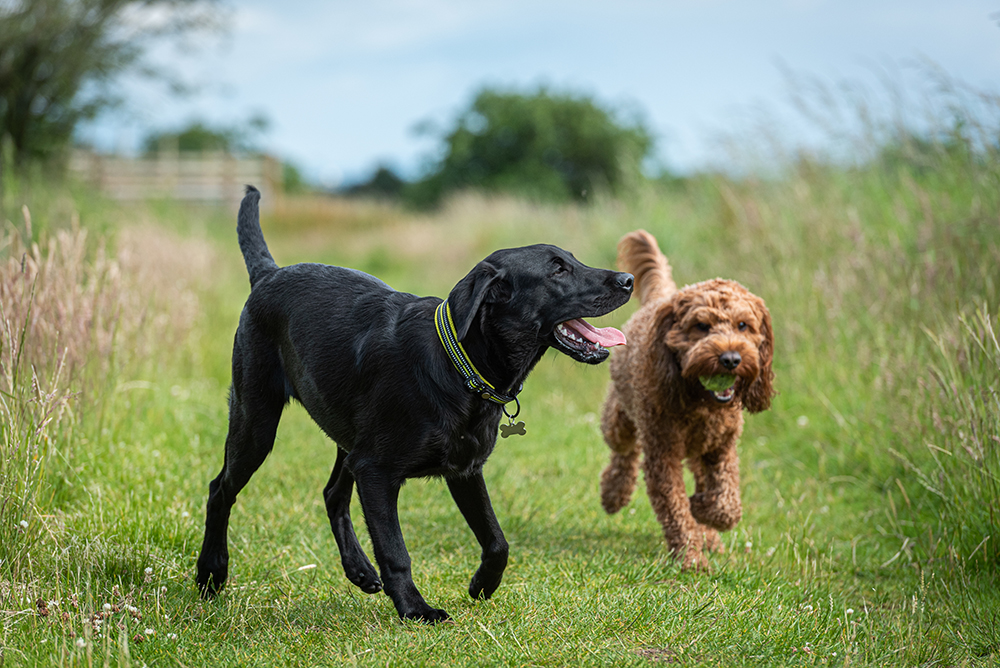
8. Digging Games
If you have a Terrier, Dachshund, or other pup that likes to dig, an outdoor digging spot can let them engage their instincts in a rewarding setting. Here is an excellent way to add enrichment while protecting your garden beds and landscaping from undue damage.
Build a digging box, use a sandbox, or fill up a kiddie pool for your dog to dig through. Fill the space with play sand, and bury treat-filled toys, chews, and other goodies before unleashing your dog to find them.
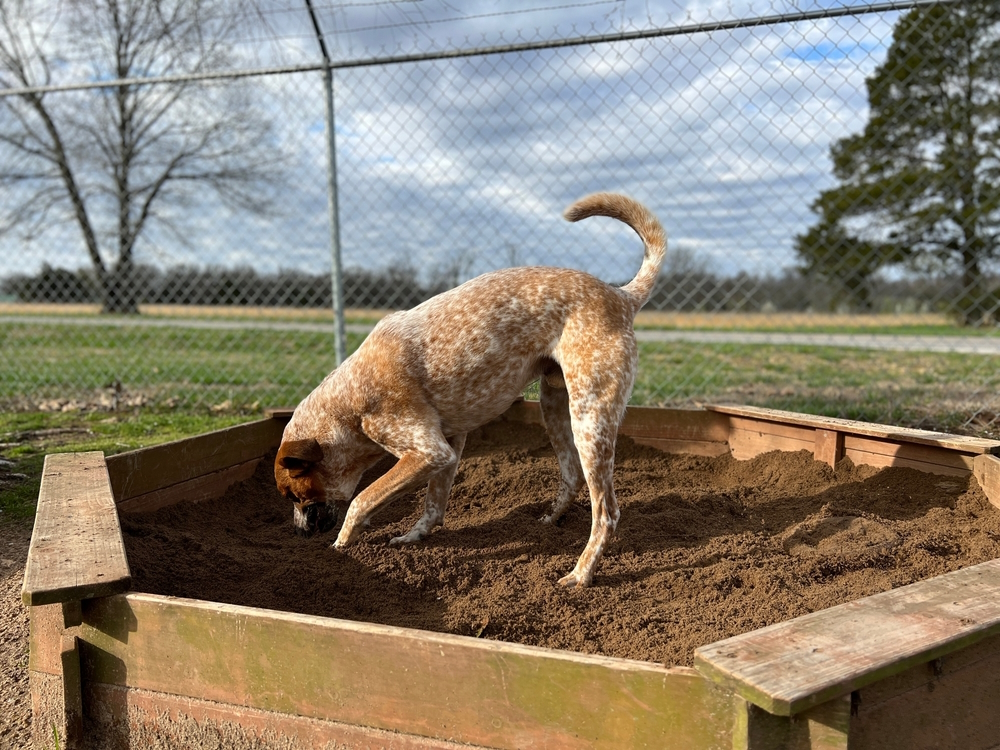
9. Flirt Poles and Bubbles
In many cases, we don’t need to do anything more than give our dogs something to chase around for adequate physical and mental exercise. Flirt poles are easy to wield and give you an excellent tool for entertaining your dog and training them.
You can also set up a bubble machine for a more hands-free activity to delight your dog. Dogs love running after and popping bubbles with their mouths, and some dog-safe bubbles include enticing scents like bacon or peanut butter to make the game even more fun.
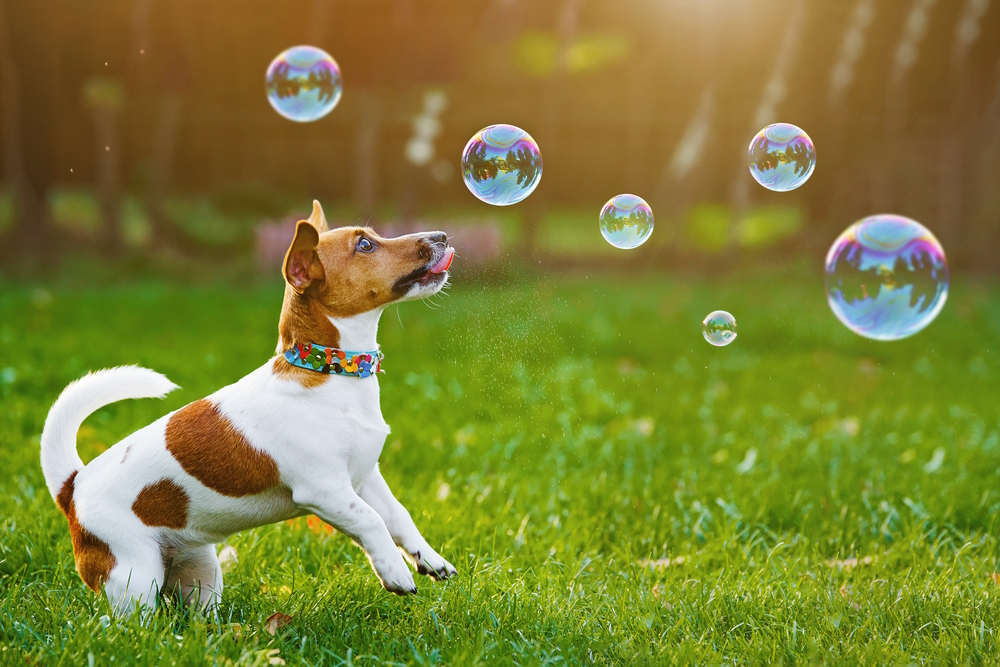
10. Agility
After mastering obedience, leash behaviors, and other essential skills, you may want to try upping the training challenge and engage your dog in agility exercises. Even if you don’t think your dog is physically fit to compete at the highest level, any breed can partake in these fun obstacle courses at home or in organized club events.
Several teaching points are involved in building a dog’s aptitude for agility, including handling manners, trick training, and developing their focus on your direction. Agility classes are a wise idea if you think your dog would enjoy the sport.
You can then practice on obstacles at home, using weave poles, jumps, and pause tables in different courses for your dog to run.

11. Kiddie Pool or Sprinkler Play
Water-loving dogs enjoy splashing around in the backyard to beat the summer heat. Cooling down can be as simple as turning on the sprinkler and playing games of fetch through it. You can also fill a kiddie pool with cool water and have your dog bob for chews, toys, or treats.


Conclusion
When the weather is nice, you owe it to your dog and yourself to play outside. No matter the breed or age, any dog can enjoy the many mental, physical, and social benefits of playing games. Having fun while getting an excellent workout is the best way to do it, and with these backyard games for inspiration, you’ll have no issue finding entertaining opportunities to bond with your canine pal.
Featured Image Credit: Gorodenkoff, Shutterstock
